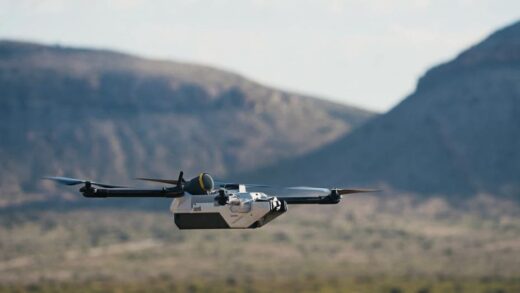Intuitive Machines: Pioneering Lunar Exploration and the Future of Space Economy
Steve Altemus, co-founder and CEO of Intuitive Machines, is no stranger to making history, but his rise to prominence is intertwined with a tragedy that shook the space community. Back in 2003, while employed at NASA’s human spaceflight division, Altemus was thrust into the spotlight following the catastrophic disintegration of the space shuttle Columbia during reentry. The incident, which resulted in the tragic loss of all seven crew members, tasked Altemus with leading the forensic investigation. His meticulous work, which involved reconstructing over 85,000 pieces of debris, played a crucial role in ensuring the safety of subsequent shuttle missions, allowing them to operate without incident for nearly another decade.
The Birth of Intuitive Machines
Two years after the last shuttle flight in 2011, Altemus left NASA and co-founded Intuitive Machines, a compact aerospace company based in Houston, Texas. Despite its size—employing fewer than 400 people—Intuitive Machines has ambitious aspirations, aiming to establish a new economy on the moon. This endeavor involves designing and launching scientific and communication spacecraft, primarily in collaboration with NASA’s Artemis program, which seeks to return astronauts to the lunar surface by the end of the decade.
A Milestone Achievement
On February 22, 2024, Intuitive Machines made headlines by becoming the first private company to successfully soft-land a spacecraft on the moon. The craft, dubbed Odysseus, touched down near the south pole of the moon, an area believed to contain valuable water ice deposits that could support future lunar missions. Although Odysseus operated for less than a month before its power systems failed, the mission set the stage for future endeavors. Intuitive Machines is currently engaged in multiple upcoming missions, collaborating with both NASA and private sector entities to develop communications satellites, facilitate resource harvesting, and conduct scientific research.
Vision for the Future
In a recent conversation with TIME, Altemus discussed the significance of the Odysseus mission and the broader implications for space exploration. “Launching and landing successfully on the first attempt is unprecedented,” he noted, highlighting that even during the Apollo missions, such a feat was not achieved. “Our legacy will extend beyond just landing on the moon; we aim to create an economy that thrives there.”
Connecting with NASA
Initially, Intuitive Machines operated with modest revenues, focusing on applying human spaceflight engineering to solve challenges in various industries, including oil, gas, and healthcare. It wasn’t until 2018, amid rising geopolitical tensions, that the National Security Council recognized the moon’s strategic importance, prompting a pivot towards lunar exploration. This shift led to a substantial contract with NASA, valued at $2.6 billion over ten years.
Upcoming Missions
Under this partnership, Intuitive Machines has several missions lined up, including two spacecraft that are replicas of Odysseus, each equipped with unique payloads. Additionally, the company is poised to secure a significant contract to deploy a constellation of six satellites around the moon, providing vital communication and navigation support for the Artemis program. These satellites will also enable commercial navigation services for various users globally.
Communications Infrastructure
Establishing effective communication between the moon and Earth is a complex task. Intuitive Machines has developed a unique lunar communications network utilizing underutilized radio astronomy dishes across multiple countries, including the United Kingdom, Australia, and the United States.
Reviving the Lunar Rover
In another significant achievement, Intuitive Machines recently won a NASA contract to develop a modern version of the lunar rover used during the Apollo missions. This new rover will be capable of extreme mobility and will feature autonomous driving capabilities, allowing it to conduct scientific research and exploration even in the absence of astronauts.
Competing in a Crowded Market
Despite being a smaller player in a field dominated by established companies like Boeing and ambitious newcomers like SpaceX, Altemus is determined to position Intuitive Machines as a leading aerospace contender. “We aim to operate differently from traditional tier-one aerospace companies,” he explained. The company’s innovative approach has enabled it to bid successfully on missions, even landing on the moon at a fixed price of around $100 million—an accomplishment that defies the norm in a cost-plus contracting world.
Publicly Traded and Future Aspirations
Intuitive Machines made its public debut on the NASDAQ in February 2023, coinciding with the anniversary of their lunar launch. With around 120 million shares and a market valuation exceeding $500 million, the company is poised for growth. Altemus emphasizes a broader mission: to transform the space industry by reducing the time frame for developing space systems, asserting that the moon’s potential warrants a comprehensive commitment from the United States.


